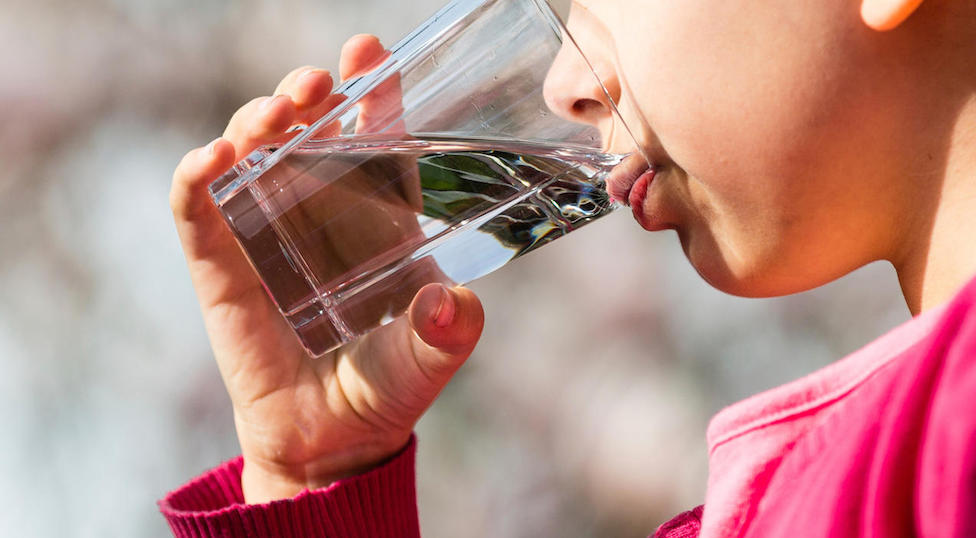Nitrates in drinking water could be causing up to 100 bowel cancer cases and 40 deaths in New Zealand every year, new research shows.
The study, published in international journal Environmental Research, was a collaboration between Otago, Auckland and Victoria universities and Loughborough University in the United Kingdom.
Researchers collected data from all 67 of New Zealand’s district and regional councils, as well as samples from private water supplies, to create a national nitrate exposure dataset.
They then applied a bowel cancer risk estimate based off eight different studies from around the world, which looked into the link between nitrates in drinking water and bowel cancer.
University of Otago public health researcher Dr Tim Chambers said the study found about 800,000 New Zealanders were using water supplies with nitrate levels that could increase their risk of bowel cancer. The estimate is based on an exposure of one milligram per litre – a risk standard established from international studies. The current safe level in New Zealand, as mandated by the World Health Organisation (WHO), is 11.3mg/L, but some activists and experts have been pushing for it to be reduced.
“This research highlights the potential health burden of nitrate contamination, particularly if further evidence on the link between nitrate and bowel cancer reinforces existing studies,” Chambers said.
“The results support the need to take a precautionary approach towards nitrate contamination in New Zealand.”
However, the study did not directly assess the link between nitrate exposure and bowel cancer, he said, as overseas studies had done.
The probable biological mechanism for nitrates increasing the risk of bowel cancer was complicated and influenced by several factors, Chambers said, especially the balance of red meat, fruit and vegetables, and gut microflora.
These factors determined the amount of cancer-causing chemicals, called N-nitroso compounds, formed in the gut – a process known as endogenous nitrosation.
The International Agency for Research on Cancer concluded “ingested nitrate or nitrite under conditions that result in endogenous nitrosation is probably carcinogenic to humans”.
Chambers said the results also highlighted the need for the Three Waters Reform in New Zealand.
“Our recent Official Information Act requests to district councils found that some councils have not tested for key contaminants in drinking water for years, as the current legislation does not require them to do so.”
The bowel cancer research stood alongside a wider set of evidence linking nitrate in drinking water to preterm births, low birthweight and congenital abnormalities, which he said were a growing concern.
Other environmental research showed the negative impact of nitrate contamination on freshwater ecosystems and the wider environment, Chambers said.
“While more research is required in this area, particularly around the biological mechanism and additional epidemiological studies, the potential health and environmental impacts of nitrate contamination provide a compelling case for intervention.”
Nitrate contamination was mainly driven by pastoral farming, he said, especially intensive dairy farming. The most-affected parts of the country were places with intensive agriculture like Canterbury and Southland.
Farmers used synthetic nitrogen fertilisers to add nutrients to the soil, some of which were then ingested by cows and excreted.
Nitrate leaching from urine patches was the largest source of nitrate contamination from pastoral farming. Leaching has increased substantially since 1990, as much as 117 per cent in Canterbury, and many groundwater sites were still degrading.
New Zealand experienced one of the highest rates of bowel cancer in the world (35.3 age-standardised cases per 100,000), with an average of 3000 cases per year.
It is the country’s second-biggest cancer killer, the study said, causing an average of 1200 deaths per year.
Established risk factors for bowel cancer included obesity, alcohol consumption, physical inactivity, smoking, and consumption of red and processed meat.
Earlier this year, the Christchurch City Council wrote to Associate Health Minister Dr Ayesha Verrall asking for an update on research into risks of nitrates in drinking water.
In reply, Verrall noted a Ministry of Health review had found data on the link to bowel cancer remained “inconsistent” and said the ministry was forming an advisory group to review maximum acceptable values for nitrates in drinking water.
Greenpeace senior campaigner Steve Abel said everybody should be able to trust that the water from their kitchen tap was safe to drink.
“For many New Zealanders – particularly in rural areas – that is not the case.
“Over 50 per cent of New Zealanders rely on groundwater for their drinking water supply. The fertiliser and dairy industries are contaminating that vital supply.”
The major direct sources of nitrogen leaching in New Zealand were dairy cow urine, sheep urine, and synthetic nitrogen fertiliser, Abel said. New Zealand’s high number of dairy cows was only possible because of extreme fertiliser use, he said.
Greenpeace, which is offering a free mail-in nitrate testing service, wanted the government to phase out synthetic nitrogen fertiliser, lower the legal limit of nitrate in drinking water and support farmers to move to regenerative, organic practices.
Gareth Richards, of Ravensdown, said the evidence of risk was assessed by the Ministry of Health as low.
“The sector follows that guidance, not the farmer-bashing activists.
“Why would we listen to the World Health Organisation and [the Ministry of Health] on Covid-19, but ignore them about their guidance on nitrate risk?”
Stuff – Amber Allott Nov 08 2021

